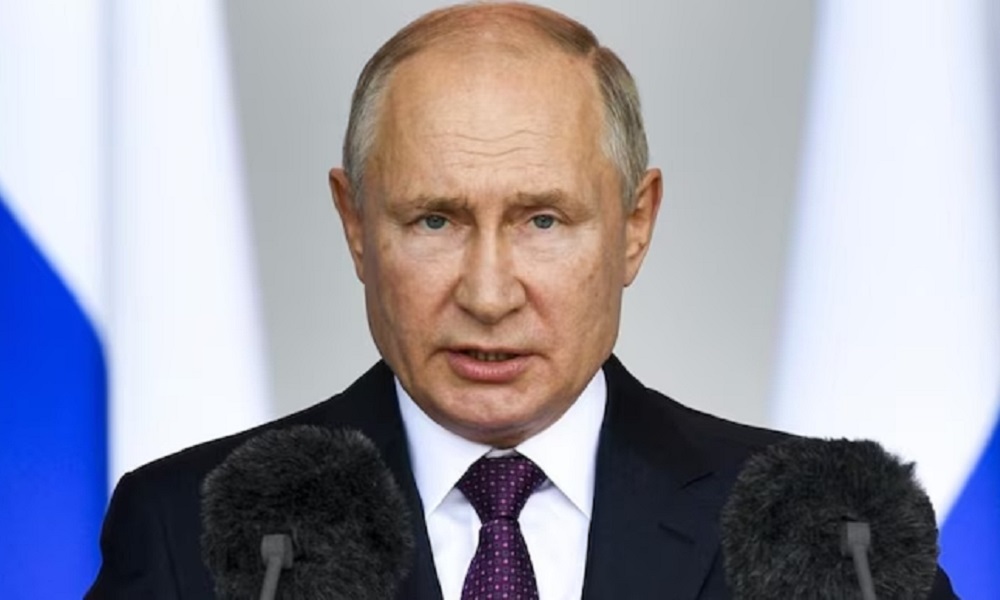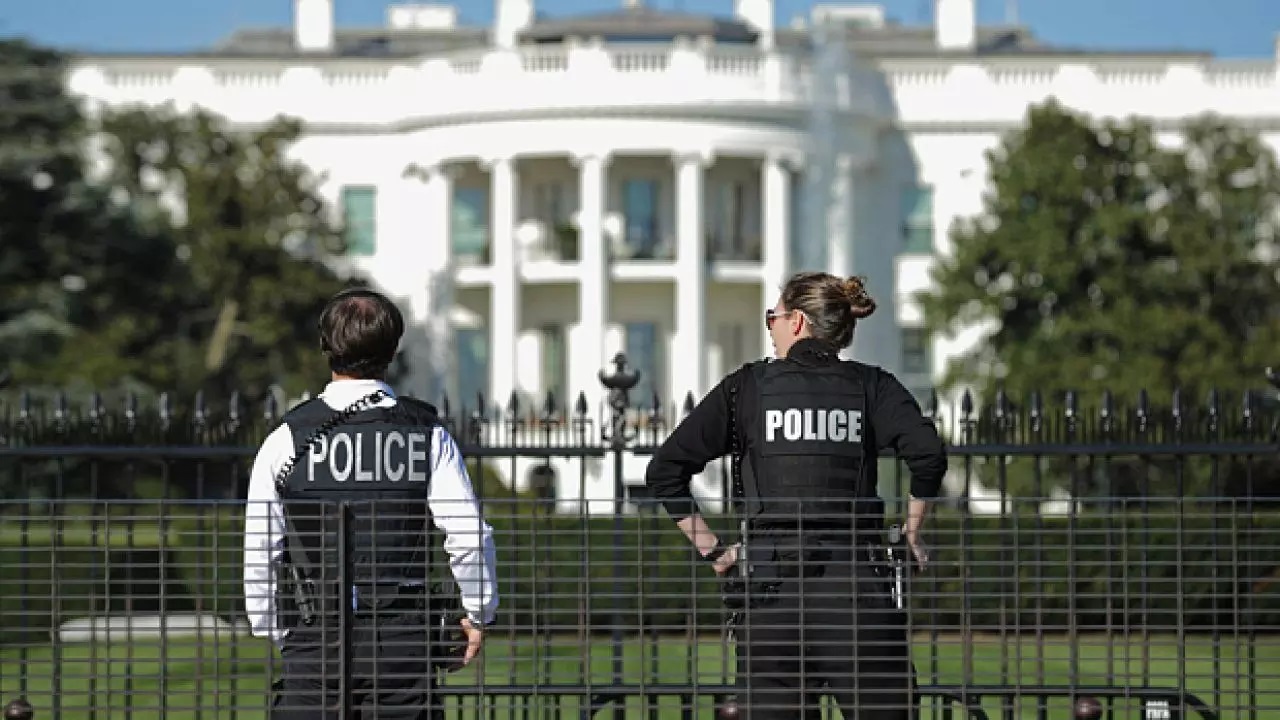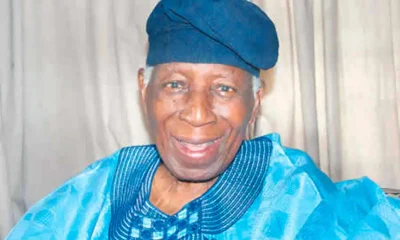Foreign
If Putin wins, expect the worst genocide since the Holocaust

Today, Karolina Hird of the Institute of the Study of War in Washington DC considers the price for ordinary Ukrainians.
Over 800 days into Russia’s full-scale invasion of Ukraine, it is easy to see the war as merely lines and colour-coding on a map. While the lines and the military movements they represent matter, those abstractions obscure the human realities behind those lines.
To be clear from the start: Russia is actively, undeniably carrying out a genocide to destroy Ukrainian identity and independence. It does this by utilising ethnic cleansing campaigns, sexual violence, and the mass deportation of Ukrainian children as part of a “forced Russification” effort. I have been following this from Washington ever since the war began.
As such, if Russia wins, the worst genocide on European soil since the Holocaust is almost guaranteed.
The Kremlin has loudly proclaimed its intent to destroy Ukraine as a state and a nation. Russian President Vladimir Putin’s 2021 essay “On the historical unity of Russians and Ukrainians,” called Ukrainians a confused people, unjustly and forcibly torn away from Russia by nefarious external forces. The Kremlin-controlled Russian Orthodox Church frequently espouses the “trinity doctrine,” the idea that Ukrainians (and Belarusians) belong to the Russian “nation” and must be “reunified.”
Russian politicians and pundits frequently call Ukraine an “artificial concept” and a “fake country” that does not deserve to exist. Russia has adopted a whole-of-government approach to build the narrative that Ukraine and Ukrainians have no right to exist as a sovereign people in a sovereign state.
Given these officially stated aims, are the genocidal actions Russia has taken to pursue them any wonder? The Convention on the Prevention and Punishment of the Crime of Genocide defines genocide as acts committed “with intent to destroy, in whole or in part” a specific group.
The destruction need not be accomplished physically – actions taken to destroy a group’s identity without killing all members of the group also constitute genocide. The Russian genocidal project includes horrific acts of violence, to be sure, including summary executions, sexual assaults, arbitrary detentions, and torture. It includes the forcible deportation of children from Ukraine to Russia, which the Genocide Convention explicitly specifies also constitutes genocide.
The deportation of Ukrainian children is a key component of Russia’s genocidal project – one that would only be extrapolated if Russia were to win the war and the rest of the country were seized by force. The Ukrainian government has verified the deportation of 19,546 Ukrainian children as of April 29, 2024. The true number is likely much, much higher considering that Ukrainian officials can only verify the deportation of children who have someone to vouch for their identity, leaving orphans and children without guardians unaccounted for.
The Kremlin has facilitated and celebrated the deportation of children to Russia, claiming it offers children an opportunity to rest and rehabilitate after living in a war zone (which Russia created by invading Ukraine). These children are subject to Kremlin-approved re-education programmes along Kremlin-accepted social, linguistic, and cultural lines and sometimes forced into military training.
Russian authorities have deported children to “rest” and “relaxation” camps throughout Russia, one of which in Russia’s Primorsky Krai is closer to Alaska than to Ukraine. High-ranking Kremlin officials, including Putin’s Commissioner on Children’s Rights Maria Lvova-Belova, have personally adopted deported Ukrainian children. She now has an arrest warrant, issued by the International Criminal Court (ICC).
Tens of thousands of Ukrainian young people are growing up under Russian military occupation, forcing them to abandon their language, culture, and history as the Kremlin seeks to destroy “in whole or in part” Ukrainian identity. This would become an entire generation were Moscow to subjugate Ukraine. Those already living under Russian occupation suffer daily efforts by Russian occupation authorities to strip them of their Ukrainian identity.
Russian authorities co-opted the school system in occupied Ukraine under the euphemism of bringing it up to the “Russian standard”: teaching only the Kremlin-approved version of Russian history in which Ukraine has no independent identity and depriving children of access to Ukrainian-language education. Russian occupation authorities also use schools to militarise children, instilling in them Russian “military-patriotic ideals” and establishing a direct pipeline into Russian military–affiliated organisations to facilitate their future recruitment into the Russian military to fight against their compatriots.
The thread of destruction and eradication runs through daily life in occupied Ukraine. Russian occupation officials have discussed forcibly deporting or summarily executing civilians who display characteristics deemed to be pro-Ukrainian or anti-Russian. Russian administrators use the threat of withholding access to basic goods and services to coerce Ukrainians to give up their Ukrainian passports for Russian ones, permanently changing the Ukrainian spelling of their names to the Russian version. Russian economic “enrichment” and infrastructure “development” projects cripple the ability of occupied areas to exercise economic self-sufficiency, generating devastating dependencies on the Russian federal government and driving a wedge between Kyiv and occupied territories.
Again, this constitutes genocidal behaviour, even when it is not exterminating people.
That said, Russia’s efforts to destroy Ukraine include ethnically-cleansing occupied Ukraine by replacing Ukrainians with Russian citizens. Russian officials claim that Russia has “accepted” over 4.8 million Ukrainians, including 700,000 children, since the beginning of the war.
There is no way to verify this number, but it emphasises the scale of movement to Russia from Ukraine since 2022, all of which occurred in the coercive context of Russian military occupation. The Kremlin is repopulating occupied Ukraine with Russian citizens to fundamentally alter its demographics and complicate future reintegration efforts. Based on examples of similar ethnic cleansing in the past, many will have inevitably died as a consequence. And that is before one even considers the blatant executions of innocent civilians by Russian soldiers, or the deliberate targeting of civilian population areas.
International legal procedure is set up to deal with atrocities after they happen. This is why Russian war crimes in Bucha, Izyum, Kherson City, and other liberated settlements have received widespread international attention and condemnation, and deservedly so. This is why the ICC has issued arrest warrants for Putin and Lvova-Belova, as their crime of facilitating the deportation of children is visible and evident.
The international humanitarian community is less effective, however, at addressing what happens daily behind the frontlines. In many cases, Russia’s genocidal project in Ukraine is banal, mundane, and hard to track and prove. But every aspect of Russia’s occupation of Ukraine is deliberate and flows from Putin’s initial justification for the invasion. It is meant to make real the Kremlin lie that Ukraine has no right to exist and that there is no such thing as a Ukrainian people.
Ukraine is fighting a war for the survival of the Ukrainian people. Russia’s genocidal project is the purpose of Russia’s military operations, and Ukraine’s supporters must not separate the two. Should Ukraine fall to Russia on the battlefield, the rest of its people will fall victim to the genocidal project Russia is conducting in the lands it already controls, which “only” constitutes about 20 per cent of the country’s legal territory. Imagine how many millions would be victims of this abhorrent behaviour if it reaches 30 per cent, 40 per cent, or even 100 per cent.
Indeed, many military experts would argue that Nazi-style tactics would be the only way to quell a population so vehemently opposed to Russia’s control. We would see horrors unfold daily.
We must face this reality squarely and stop blithely talking about offering “territorial” concessions to “stop the fighting” without forcing ourselves to confront the horrors that such concessions will inflict on the people living in those lands.
Putin’s invasion was never about seizing limited bits of land. It was always about destroying a people. Ukraine’s supporters must therefore recommit themselves to the project of saving this people and showing that they will resist and defeat aggression and genocide on this scale.
Karolina Hird is Russia Deputy Team Lead and Analyst at the Institute for the Study of War in Washington DC.
She has contributed to the Telegraph’s daily podcast ‘Ukraine: The Latest’, your go-to source for all the latest analysis, live reaction and correspondents reporting on the ground. With over 85 million downloads, it is considered the most trusted daily source of war news on both sides of the Atlantic.
You can listen to one of her extended interviews on Russian war crimes here.
Foreign
British actor Russell Brand charged with rape, sexual assault

British actor Russell Brand has been charged with rape, indecent assault and sexual assault between 1999 and 2005.
The charges relate to four separate women.
Brand has been interviewed multiple times by police since an investigation by the Sunday Times, the Times and Channel 4’s Dispatches in September 2023 revealed multiple serious allegations against him.
In a new video posted on X this afternoon, Brand said: “What I never was, was a rapist. I’ve never engaged in non-consensual activity.”
He added: “I’m now going to have the opportunity to defend these charges in court and I’m incredibly grateful for that.”
In a short statement, the Metropolitan Police said it had written to Brand to inform him that he was being charged with one allegation of rape, one allegation of indecent assault, one of oral rape and two further counts of sexual assault.
The force said it is alleged that:
In 1999 a woman was raped in the Bournemouth area.
In 2001 a woman was indecently assaulted in the Westminster area of London.
In 2004 a woman was orally raped and sexually assaulted in the Westminster area of London.
Between 2004 and 2005, a woman was sexually assaulted in the Westminster area of London.
Brand has been told to appear at Westminster Magistrates’ Court on 2 May, but he is believed to be in the United States.
In these situations, where a suspect may be overseas, prosecutors seek to agree the defendant’s return. If there is no co-operation from a suspect, authorities then consider seeking extradition.
In February a civil case for “personal injury” and “sexual abuse” was lodged against Brand at the High Court in London by an anonymous woman, referred to in court documents as AGX.
Police investigation
Jaswant Narwal of the Crown Prosecution Service said: “We have today authorised the Metropolitan Police to charge Russell Brand with a number of sexual offences.
“We carefully reviewed the evidence after a police investigation into allegations made following the broadcast of a Channel 4 documentary in September 2023.
“We have concluded that Russell Brand should be charged with offences including rape, sexual assault and indecent assault. These relate to reported non-recent offences between 1999 and 2005, involving four women.
“The Crown Prosecution Service reminds everyone that criminal proceedings are active, and the defendant has the right to a fair trial. It is extremely important that there be no reporting, commentary or sharing of information online which could in any way prejudice these proceedings.”
The Metropolitan Police’s detective superintendent Andy Furphy, who is leading the investigation, said: “The women who have made reports continue to receive support from specially trained officers.
“The Met’s investigation remains open and detectives ask anyone who has been affected by this case, or anyone who has any information, to come forward and speak with police. A dedicated team of investigators is available via email at CIT@met.police.uk.
“Support is also available by contacting the independent charity, Rape Crisis at 24/7 Rape and Sexual Abuse Support Line.”
Brand, who was born in Essex, rose to fame as a stand-up comedian, performing at the Hackney Empire in 2000 and later the Edinburgh Fringe.
He later moved into broadcasting, hosting national television and radio programmes.
The turning point in his career came in the mid-2000s, when he hosted Big Brother’s Big Mouth, a companion show to the hugely popular reality series Big Brother.
It provided the springboard he was looking for and led to him becoming one of the most sought-after presenters in the UK.
Brand went on to host the NME, MTV and Brit awards ceremonies, had his own debate series by E4, and fronted the UK leg of charity concert Live Earth.
But he was never far away from controversy, particularly at awards ceremonies – which provided the kind of live, anything-can-happen chaos where he was most at home.
His career included hosting radio shows on the BBC, in particular for 6 Music and Radio 2, between 2006 and 2008.
But inappropriate phone calls he made to the Fawlty Towers actor Andrew Sachs during a show in 2008 prompted a huge scandal – and ultimately led to his dismissal.
He rebounded with a Hollywood career, starring in films like Forgetting Sarah Marshall and Get Him To The Greek.
Recent years have seen him take a new direction – particularly since the start of the Covid pandemic in 2020.
Brand grew his following on YouTube as he discussed scepticism surrounding the disease.
He has developed a cult following for his views on politics and society, through videos which challenge the mainstream reporting of a range of subjects and often amplify conspiracy theories. He has also established himself as a wellness guru.
Foreign
U.S. prohibits personnel in China from romantic, sexual relationships with Chinese citizens

The U.S. government has banned American government personnel in China, as well as family members and contractors with security clearances, from any romantic or sexual relationships with Chinese citizens, The Associated Press has learned.
Four people with direct knowledge of the matter told the AP about the policy, which was put into effect by departing U.S. Ambassador Nicholas Burns in January shortly before he left China. The people would speak only on condition of anonymity to discuss details of a confidential new directive.
Though some U.S. agencies already had strict rules on such relationships, a blanket “non-fraternization” policy, as it is known, has been unheard of publicly since the Cold War. It’s not uncommon for American diplomats in other countries to date locals and even marry them.
A more limited version of the policy was enacted last summer prohibiting U.S. personnel from “romantic and sexual relations” with Chinese citizens working as guards and other support staff at the U.S. Embassy and five consulates in China. But Burns, the departing ambassador, broadened it to a blanket ban on such relations with any Chinese citizen in China in January, days before President Donald Trump took office. The AP was unable to determine exactly how the policy defined the phrase “romantic or sexual relationship.”
Two of the people with knowledge of the ban told the AP the new policy was first discussed last summer after members of Congress contacted Burns to express concern that restrictions on such relationships were not stringent enough. The House Select Committee on the Chinese Communist Party did not respond to a request for comment.
The new policy covers U.S. missions in mainland China, including the embassy in Beijing and consulates in Guangzhou, Shanghai, Shenyang and Wuhan, as well as the American consulate in the semi-autonomous territory of Hong Kong. It does not apply to U.S. personnel stationed outside China.
The only exception to the policy is U.S. personnel with pre-existing relations with Chinese citizens; they can apply for exemptions. If the exemption is denied, they must end the relationship or leave their position, the people said. Anyone who violates the policy will be ordered to leave China immediately.
The policy was communicated verbally and electronically to American personnel in China in January, but has not been publicly announced.
The State Department said it does not comment on internal matters. The National Security Council referred questions to the State Department. Burns, the former ambassador, did not reply to an AP request sent to his email address at The Cohen Group, a consultancy that he rejoined as vice chair in February.
Intelligence services across the world have long used attractive men and women to obtain sensitive information, famously during the Cold War. The State Department and other agencies with offices in China have long had stringent reporting requirements on personal relationships for American personnel stationed there, as well as rivals considered high intelligence threats such as Russia or Cuba.
Declassified State Department documents show that in 1987, the U.S. government barred personnel stationed in the Soviet bloc and China from befriending, dating or having sex with locals after a U.S. Marine in Moscow was seduced by a Soviet spy. Such restrictions were relaxed after the collapse of the Soviet Union in 1991, according to news reports at the time.
In China, a blanket ban on such relations has not been in effect for many years. Until the new ban in January, U.S. personnel in China were required to report any intimate contact with Chinese citizens to their supervisors, but were not explicitly forbidden from sexual or romantic relationships.
U.S. diplomats and intelligence experts say that Beijing continues to aggressively use so-called honeypots to access American secrets. In presentations before being stationed in China, U.S. personnel are briefed on case studies where Chinese intelligence services sent attractive women to seduce American diplomats, and warned that dozens of Chinese state security agents can be assigned to monitor any individual diplomat of interest.
Little is known about the U.S. government’s non-fraternization policies elsewhere, as they are considered classified. It is unknown how restrictive such policies are in other countries.
In recent years, tensions between Washington and Beijing have escalated over trade, technology and geopolitical competition.
Peter Mattis, a former CIA analyst and president of The Jamestown Foundation, a Washington-based think tank, said there were at least two publicized cases in which Chinese agents seduced American diplomats stationed in China, though he hasn’t heard of such a case in recent years.
Mattis added that another issue is that Chinese state security doesn’t gather intelligence just through spies, but also by pressing ordinary Chinese people for information, often through threats or intimidation. That, Mattis said, means any Chinese citizen who dates an American diplomat could be vulnerable to coercion.
“The MSS is willing to leverage any human connection that a target has to collect intelligence,” Mattis said, using an acronym referring to China’s Ministry of State Security. “This rule change suggests the MSS has gotten a lot more aggressive at trying to access the embassy and U.S. government.”
The Chinese foreign ministry did not comment on the ban, saying in a faxed statement that it was “more appropriate to ask the U.S. about this question.”
China also has been tightening already strict controls on its personnel overseas, according to Chinese regulations, news reports and four people familiar with China’s bureaucracy who spoke on condition of anonymity so they could discuss a sensitive topic. In recent years, Beijing began strictly enforcing regulations that bar promotions for Chinese civil servants with spouses who acquired foreign citizenship and restrict diplomats from spending an extended period of time in one country, forcing some to return to China.
China’s foreign ministry and many other government bodies bar their officials and staff from sexual or romantic relations with foreign citizens, while members of the Chinese military or police are generally barred from leaving China altogether without express approval from their supervisors.
Foreign
Suspicious package found near White House day after Trump imposed tariffs

Law enforcement is currently responding to reports of a suspicious package near the White House.
The area has been secured, and specialized units are on-site to assess the situation.
Authorities are urging the public to avoid the vicinity until further notice.
The section between 15th and 17th streets is completely shut down.
The bomb squad is now examining a suspicious package discovered in a dumpster nearby.
The package was found about 500 meters from the White House. President Donald Trump is currently in residence.
This is coming a day after Trump imposed tariffs on several countries, including US allies.
-

 Politics11 hours ago
Politics11 hours agoTinubu Gives Fani Kayode, Others New Appointments (See Full List)
-

 News11 hours ago
News11 hours agoDANGER! Ex-Soldier Abubakar Affan Vows to Kill VeryDarkMan ‘Like Deborah Samuel’
-

 News14 hours ago
News14 hours agoWhy NYSC maybe extended by FG- Minister
-

 News14 hours ago
News14 hours agoIbas moves to rehabilitate damaged Rivers LG secretariats
-

 News11 hours ago
News11 hours agoJust in: Ex-Oyo governor, Olunloyo is dead
-

 News14 hours ago
News14 hours agoWike commissions another solar-powered market in Abuja
-

 Economy13 hours ago
Economy13 hours agoCrude prices slump to $65 first time since 2021
-

 Economy14 hours ago
Economy14 hours agoCBN allocates $197.71m into FX market to support naira





